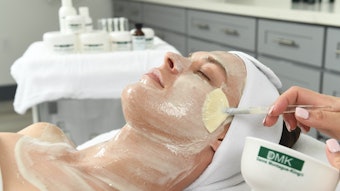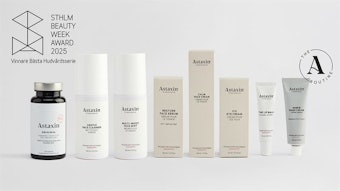
“Be a pineapple. Stand tall, wear a crown and be sweet on the inside.” This quote from Katherine Gaskin is stenciled on placards and hung in the bedrooms of today’s aspiring youth. Beyond the confidence it instills in their hearts, this tropical fruit imparts various benefit for health and in skin, thanks in part to its bromelain content.1
In fact, pineapple or Ananas comosus—also known as A. sativus, Ananassa sativa, Bromelia ananas and B. comosa—is reportedly the leading edible member of the namesake family Bromeliaceae, according to a review published in Biotechnology Research International.1 The Spanish name for pineapple, pina, and the root of its English name reflect the fruit’s similar appearance to the pine cone.2 It is grown in several tropical and subtropical regions, such as the Philippines, Thailand, Indonesia, Malaysia, Kenya, India and China, and it has been used as a medicinal plant in native cultures.1
According to the same report, the medicinal qualities of pineapple are mainly attributed to its bromelain content. This mixture of closely related enzymes exhibits activities ranging from fibrinolytic/antithrombotic and antiedematous, to prevent blood clots and edema, respectively; to anti-inflammatory and more.1
Enzyme Basics
Bromelain is a mixture of substances extracted from the stem and core fruit of the pineapple. According to a report by the George Mateljan Foundation,2 among the many components present in this extract, the best-studied are protein-digesting enzymes called cysteine proteinases.
Enzymes in general are formed by stringing together 100 to 1,000 amino acids in a specific order.3 This chain then folds into a unique shape, and this specific shape fits and locks into a substrate to transfer energy and carry out specific reactions.
The purpose of enzymes is to increase the rate at which reactions occur, to allow cells to build things, e.g., renew skin cells or take them apart quickly. Enzyme facial peel, anyone? This is because at the temperature and pH level of most cells, chemical reactions such as or cell growth and reproduction do not proceed fast enough to maintain cell viability. Enzymes accelerate the rates of reactions by more than a million-fold, so reactions that would normally
take years can occur in fractions of seconds with the appropriate enzyme.3
Skin Care Applications
The skin care industry has been using enzymes for years. According to a report from Cosmetics & Toiletries,3 they have proven useful to treat skin conditions related to aging, acne, congestion and pigmentation—although, according to one report,4 bromelain’s molecular weight may be too high to penetrate deeply enough to impart efficacy on stubborn dark spots.
The most common benefits of enzymes in skin care include free radical-scavenging, protein breakdown, structural reinforcement, antibacterial benefits and exfoliation. In fact, proteolytic enzymes—also referred to as protease, proteinase or peptidase, such as those found in bromelain—are used in cosmetics to break proteins down into their shorter component peptides and eventually, to amino acids. The skin can then re-absorb these components to promote its own cell growth and renewal.3
Interest in enzymology for cosmetic and dermatology applications has recently grown. This is due in part to advances in optimizing their functionality, safety and stability in cosmetic systems to provide skin and product protection, not to mention their natural and renewable status.
One area where topical enzymes have shown significant benefits is in skin protection. As noted, enzymes capture free radicals, preventing damage from such recent concerns such as environmental pollution, bacteria, smoke and sunlight. In this capacity, enzymes work successfully on the surface of skin without the need to penetrate deeper to reach living cells.3
Continue reading in our April Digital Magazine...
References
- www.ncbi.nlm.nih.gov/pmc/articles/PMC3529416/
- http://whfoods.com/genpage.php?tname=foodspice&dbid=34
- www.cosmeticsandtoiletries.com/formulating/category/skincare/Enzymology-Accelerating-Success-in-the-Skin-Care-Market-417062653.html












